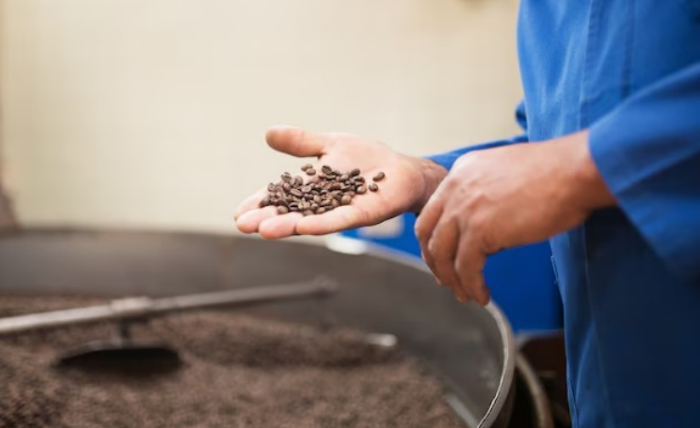Coffee is not just another offering on the menu or a little thing that people do not pay attention to. So it is important to make an informed decision when you are finding the perfect coffee supplier for your business. With so many factors to consider choosing the one arabica coffee beans seems overwhelming.
With many options available in the market, picking the right partner can significantly impact the success of your venture. We all know what it’s like to get a bitter and lifeless coffee mug when you are hoping for something smooth and rejuvenating. If you’re looking to create the perfect coffee experience for your customers, a high-quality mug is just as important as the coffee itself. That’s why it’s essential to choose a reliable print-on-demand partner for your mugs. A great option to consider is www.gooten.com/print-on-
Thankfully it is not difficult to avoid a not-so-good partnership when you know what you are looking for. So here are some factors to consider when you buy coffee beans online for your business.
Find Out Your Coffee Needs First
Before knowing the selection process first have a clear understanding of your coffee needs. Analyze factors like
- The volume of arabica coffee beans you will need
- Types of coffee you will prefer
- Any special requirements your business requires.
Apart from all of these, think about the budget you have.
What to Consider When Choosing a Wholesale Supplier for Your Business
Let’s take a look at the process that you should follow With this in mind. This will ensure a perfect fit for your business. Here are the main points to think about:
1. Location Matters
The first thing to consider is the location of your possible coffee supplier. Using a local supplier can send a positive message to your customers supporting local businesses.
It also makes it easier for you to access their team and quickly restock your arabica coffee beans as you need. Do not hesitate to explore suppliers from outside your immediate area as some of them are willing to travel to deliver.
2. Quality over Quantity
The quality of coffee beans is important. Find out the suppliers who provide high-quality and freshly roasted coffee beans. Consider if you want single-origin beans or blends.
Not all coffee beans are created equally affecting the flavour and consistency of the coffee you serve. Higher quality beans result in premium taste and consistency in each roast.
3. Range of Products and Services
Analyze the range of coffee products and services offered by each supplier. Some may provide detailed packages including
- Coffee machines
- Brewing equipment
- Barista training
- Repairs and maintenance
Make sure your supplier provides various range of coffee options if you want to serve different options. Ensure your supplier meets your coffee selection needs. For customers seeking something unique, consider adding Amazon mushroom coffee to your offerings, which can provide a smoother, healthier alternative to traditional coffee blends and appeal to those looking for a different kind of boost.
4. Ethical Sourcing and Sustainability
Many consumers today prioritize ethical sourcing and sustainability. Look if the supplier supports fair trade and direct relationships with coffee farmers.
Consider if your customers expect a coffee range that does good for the growing community.
5. In-House Roasting or Contract Roasting
Choose if you prefer a coffee supplier that roasts their coffee in-house or one that uses contract roasting. In-house roasting might be your preference if having a direct connection with the roaster is important.
But if you are more concerned about the quality and consistency of the coffee itself contract roasting may be suitable.
6. Sample Testing
Before finalizing a supplier request sample testing. This step is vital in assessing the
- Quality
- Flavor profile
- The overall appeal of the coffee.
You will get a first-hand experience of what your customers will enjoy by a tasting session. Ensure that the coffee meets your brand’s image and quality standards. Coffee tasting allows you to taste the richness and diversity of coffee blends ensuring they align perfectly with your brand and customer expectations.
7. Order Flexibility and Scalability
A good Arabica coffee beans supplier should offer flexibility and scalability in order fulfillment. This includes
- Taking varying order sizes
- Seasonal demands
- Special requests
From managing seasonal changes to catering to special requests. Many brands is equipped to adapt and grow alongside your business.
8. Customer Service and Support
Excellent customer support is important if you are new to the coffee business. Before choosing a coffee supplier in this particular area people often neglect to consider. This comes around to provide a lot of frustration especially when they have a more affordable option.
Consider the level of
- Support
- Training
- Maintenance services are provided by each supplier.
9. Pricing and Budget Considerations
Pricing and budget are also major parts of buying coffee beans online. Fair pricing fits with your budget without compromising on quality.
Look for suppliers who offer transparent pricing structures providing cost-effective solutions customised to your business needs.
Keep in mind that the cheapest coffee is not always the best. Also, understand what is included in the price like training and support with additional services.
Certification To Look For When Finding Sustainable Coffee Sourcing
One of the easiest ways to find coffee bean suppliers wholesale is by finding third-party documents.
Also some specific terms on the labels. Here are some of the most prominent certifications for sustainable coffee sourcing.
1. Rainforest Alliance Certified
Founded in 1983 The Rainforest Alliance Certification ensures that the coffee has been grown focused on forest conservation efforts.
The strict guidelines for coffee farms are:
- Responsible water management
- Conservation of natural resources
- Promoting Biodiversity.
2. Bird-Friendly Certification
The Smithsonian Migratory Bird Center founded this certification. People ensure that coffee is grown under shade providing a habitat for migratory birds.
To promote biodiversity and sustainable agricultural practices, this certification maintains a diverse canopy of trees.
3. Fair Trade Certified
Fairtrade is a certification program aiming to promote sustainable and fair trading practices for small-scale farmers and workers in developing countries.
This certification ensures that coffee producers receive a fair price for their products. And also they stick to environmental and social standards.
4. UTZ Certified
Founded in 2002, this certification program for sustainable coffee production. The coffee roasters and stakeholders who founded this wanted to promote sustainable farming practices.
This program works with farmers and companies with other coffee supply chain stakeholders.
All these ensure that coffee is produced in a way that is environmentally and socially responsible.
5. Specialty Coffee Association Certified
This particular non-profit organization represents the speciality coffee industry worldwide. The SCA offers several certification programs aimed at promoting quality and sustainability in the speciality coffee industry.
The SCA also offers a certified commercial coffee equipment program certifying commercial coffee equipment for quality and safety standards.
6. USDA Organic
The USDA Organic certification emerged as part of a broader movement towards sustainable agriculture.
Rosa Morena coffee beans supplier with the USDA Organic certification typically support
- Soil health
- Biodiversity
- Water quality.
This government certification guarantees the use of approved organic practices. This includes keeping synthetic fertilizers and pesticides out of our morning cup.
7. Direct Trade
This coffee certification program focuses on building direct relationships between coffee producers and roasters.
Inline other certification programs this program does not have a set of specific standards or requirements.
Instead of this, the program emphasizes the importance of building strong and direct relationships between coffee producers and roasters.
At a premium price range, this certification sold coffee. This reflects the higher quality of the coffee and the commitment to sustainability and transparency.
8. Shade Grown
Though it is not an official certification coffee labelled “Shade-Grown” simply means producers provide shade for coffee plants.
This is to mimic the natural forest ecosystem and promote biodiversity. Coffee grown under the shade of other trees replicates its natural forest habitat.
Areas To Source Sustainable Coffee
Identifying a sustainable coffee brand can be overwhelming given the multitude of options on the market. Look for coffee brands that participate in direct trade with farmers or assist smallholder farmers in regions where coffee is cultivated.
1. Atlantica coffee
Atlantica Coffee since the beginning, has seen coffee beyond just a product. This international coffee trade is the biggest exporter of Arabica coffee in Brazil and a connection and an involvement factor
2. FRINJ Coffee
As the climate changes more drastically supply chain issues make it so the tropical regions where coffee has traditionally grown. This brand has chosen to cultivate coffee as locally as possible.
3. Tiny Footprint
This brand is the world’s first carbon-negative coffee. They support sustainability and fair labour.
4. Pachamama
This brand stands as North America’s inaugural specialty coffee roaster that is entirely owned and managed by smallholder farmers.
5. Larry’s Coffee
This brand is guaranteed to provide a slow-roasted cup of coffee. They also make the roasting process both environmentally and socially responsible.
6. Counter Culture Coffee
This brand is committed to tangible environmental and social sustainability. As roasters, they collaborate with various types of producers.
Conclusion
Choosing the right coffee supplier for your cafe or business is a significant decision impacting your business’s success. Thoroughly evaluate the above-mentioned factors and ask the right questions. By doing these you can make an informed decision about choosing a good Arabica coffee beans supplier.
Remember when buying coffee beans online you will need to meet with your cafe’s unique vision and goals to ensure a productive partnership for years to come.


